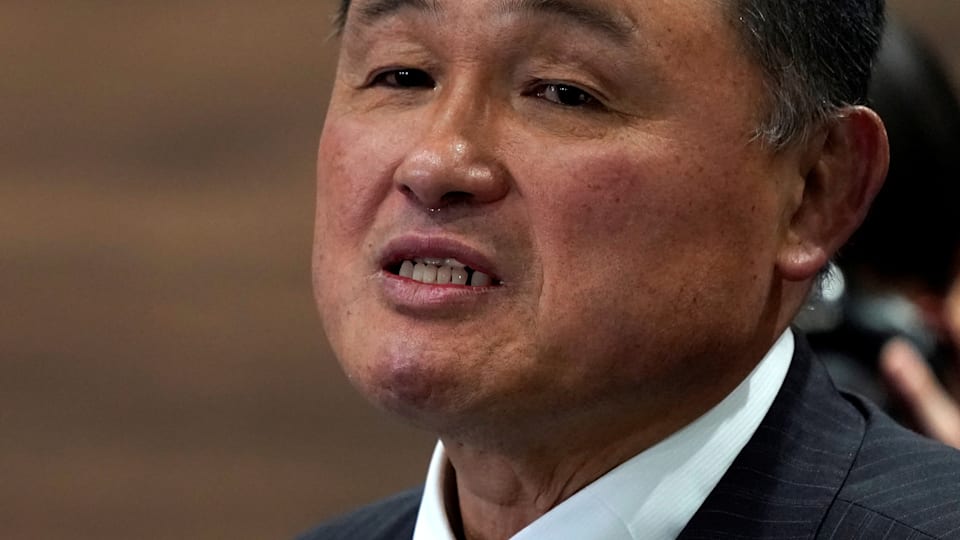JOC President: Athletes still first after Tokyo 2020 postponement
Yamashita Yasuhiro says Japanese Olympic Committee will be 100 per cent behind athletes as they regroup for next year's Games.

Athletes will remain at the heart of all decision-making process for the postponed Tokyo 2020 Olympic and Paralympic Games, Japanese Olympic Committee (JOC) President Yamashita Yasuhiro said on Wednesday (25 March).
A night after Tokyo 2020, originally set to be held 24 July-9 August, were put off around a year in light of the coronavirus pandemic, Yamashita said it pained him to see the Games rescheduled.
But it was a decision that had to be taken with no light at the end of the tunnel currently visible to the global crisis, Yamashita said.
"To be perfectly honest, the decision came sooner than I expected", Yamashita told reporters at JOC headquarters in Tokyo.
"I think athletes not only from Japan but all around the world have different views on the situation. But I hope they understand the decision was taken with the safety of the athletes in mind first". - JOC President Yamashita Yasuhiro
The International Olympic Committee and Tokyo 2020 Organising Committee jointly announced that the Games will be rescheduled to a date in 2021 but no later than the summer, following a conference call including Japanese Prime Minister Abe Shinzo, IOC President Thomas Bach, Tokyo Governor Koike Yuriko and Tokyo 2020 chief Mori Yoshiro.
Tokyo 2020 is the first Games to ever be postponed.
The Olympic Torch Relay, which was set to launch from the J-Village in Fukushima Prefecture on Thursday, was also put on freeze. The remaining Ready Steady Tokyo test events will also be cancelled.
Tough call
Yamashita, himself a gold-medal winning judoka at Los Angeles 1984, sympathised with the athletes who had put in an enormous amount of effort to qualify for the Tokyo Games and were training to peak this summer.
He expressed particular concern for those who were aiming to end their careers on a high at Tokyo 2020.
"I realise for some athletes, they were going to retire with the Games so it will be difficult for them to regroup", Yamashita said. "But I hope they keep their chins up and try to turn this into a positive. I hope they find the strength to build it back up.
"I'm almost 63 and I can tell you a lot happens in life. But never give up, keep fighting and stay young. Look forward to next year".
Yamashita said the length of the postponement was probably the most optimal when putting athletes first.
"For the athletes, the shorter the postponement, the better. But when I look at the situation around the world, we are far from being in the clear," he said.
"Bearing that in mind, I think maybe one year is just about right. Two years will be too taxing for many athletes".
Fair play
One challenge that will almost certainly stir debate in every country is the qualifying procedure for the Games, deciding whether to start from scratch or allow those who have already qualified to retain their places.
The Japan Table Tennis Association, for example, said shortly after the postponement was announced that it was planning to keep the existing team for 2021.
Yamashita said he does not plan to intervene in those conversations but will demand the national federations to organise a fair and impartial qualifying process.
"The JOC does not consider itself a governing body of the NFs. Each and every NF has its own situation and I think it is fine for them to have differing positions on this matter," Yamashita said.
"But we will ask them to hold a fair qualifying process with a clearly defined selection criteria that is transparent to athletes and everyone else.
